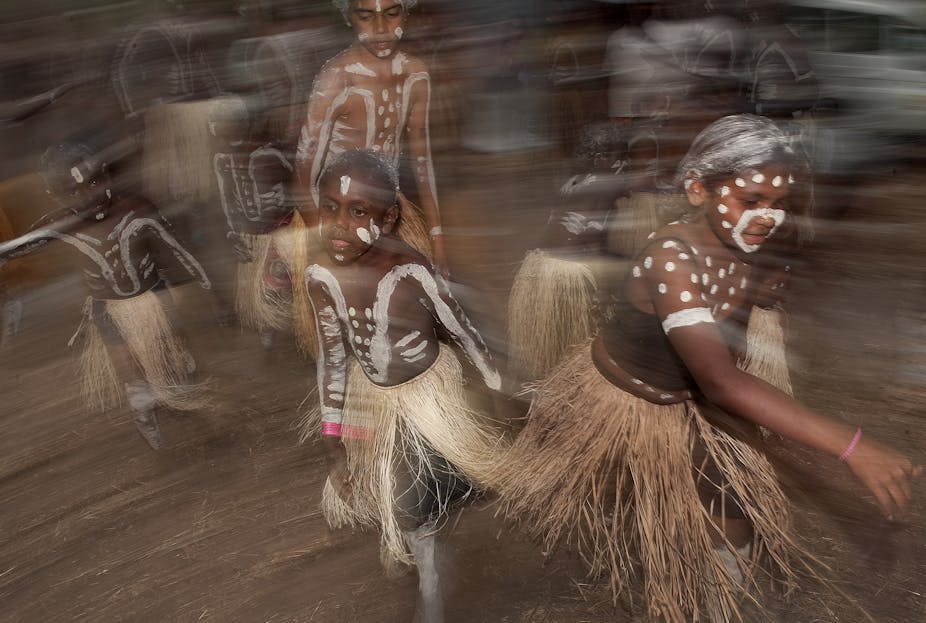There is unfinished business in Australia, and it’s time to start a serious conversation about resolving it. We need to talk about the planned referendum on Indigenous recognition in the Australian Constitution.
Every year since 1996 the nation has taken the week between two significant dates - 27 May (the anniversary of the 1967 referendum) and 3 June (Mabo Day, the anniversary of the 1992 judgment in the Mabo case) - as an opportunity to reflect on the successes of reconciliation between Indigenous and non-Indigenous Australians and consider what still needs to be done.
And this National Reconciliation Week, as in other years, many non-Indigenous Australians will be wondering why we bother.
For many people, reconciliation belongs back in the 1990s, ending with the mass walk across the Sydney Harbour Bridge and the end of the formal reconciliation process.
For others, reconciliation became all about John Howard’s focus on the “practical” — housing, jobs and so on — rendering further talk of the “symbolic” aspects of reconciliation an irrelevant sideshow.
And with still no discernible improvement in the lives of many Aboriginal and Torres Strait Islander peoples, cynicism bloomed.
Goodwill across Australia
But despite the cynicism reconciliatory activities continued. The hundreds of Reconciliation Action Plans signed up to by the corporate and institutional partners of Reconciliation Australia indicate a high level of goodwill in organisations all around the country.
And of course we saw the magnificent apology to the Stolen Generations delivered by former prime minister Kevin Rudd in February 2008.
So what is it we still need to be talking about during Reconciliation Week in 2011?
Long road ahead
It is a sad reality that Australia is a very long way from being reconciled. Indigenous people in Australia continue to experience poorer living conditions, shorter life expectancy and disadvantages in health, education, housing and employment.
More broadly, however, Aboriginal and Torres Strait Islander peoples and their cultures remain at the margins of our national identity and our understandings of our history, rather than at the centre where they belong.
To deal with these issues, Australia has long been fixated on what Harvard professor Ronald Heifetz would call “technical work.”
Tinkering around the edges
Despite a considerable history of policy failure in Indigenous affairs, the national response seems always to be to reach yet again into the policy bag of tricks, dust something off and try once more to apply a technical solution to what is clearly a much deeper problem.
That deeper problem is us. Rather than considering our own role in the ongoing marginalisation of Aboriginal and Torres Strait Islander peoples, non-Indigenous Australia chooses what Heifetz calls “work avoidance”, reaching again for a technical solution, when what is needed is far more challenging “adaptive” work.
Heifezt describes adaptive challenges as those for which there is no simple solution, which require us to adapt, to learn new ways, and to develop our social and cultural capacity.
What he is suggesting is that for progress to be made in complex situations, where many of the previous “technical” solutions have persistently failed, change is required at a deeper level.
Changing public opinion
In the Australian context this means that it will not be a change of policy or even a change of government that will help us to reconcile. If we want to “close the gap” between the values many of us profess to hold with regard to the status and life chances of Aboriginal and Torres Strait Islander peoples and the reality we face, what needs to change is us.
These are the conversations we need to be having during Reconciliation Week. The theme for the week in 2011 is “Let’s talk recognition!”, chosen in order to direct the nation’s focus to the planned referendum on constitutional recognition of Indigenous people, likely to be held in 2012.
The expert panel appointed by the government to advise on the form of recognition has a huge challenge ahead, with a hectic schedule of consultations planned before their deadline of reporting to government in December.
The far greater challenge lies, however, in the work that will be required of us all if a referendum is to succeed.
Reflection before the vote
The national conversation that needs to be had in the lead up to a referendum will be difficult and will require some honest reflection on aspects of our history.
Acknowledging that Aboriginal and Torres Strait Islander peoples have a rightful place in our constitution reminds us that they were not afforded such recognition at federation, let alone in the colonial years preceding it.
There are wrongs in our past that we are yet to make right.
The German writer and jurist Berhard Schlink reminds us that reconciliation is the most demanding and difficult way in which to achieve closure in the wake of an injury.
Too often in Australia, our efforts in the direction of reconciliation have foundered in the face of our adaptive challenge and we have reached again for the technical fix.
This year why not see if we can start a different conversation.

